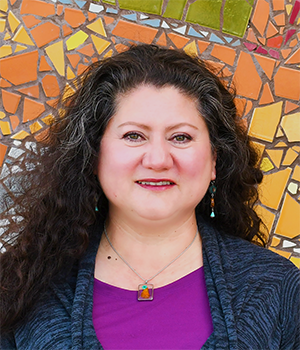Leslay Choy
Q&A WITH BOARD MEMBER LESLAY CHOY
Leslay Choy re-joined the WDB board in 2020 after serving a term in 2014 and currently serves on the Business & Economic Development Committee.
Q: What is your profession, and how does it intersect with workforce development?
A: Anyone working in economic development who gets to invest on the daily in making a difference is truly fortunate. I serve as the executive director of the San Pablo Economic Development Corporation where we focus on equitable approaches to the education and training or workforce and businesses with the goal of creating economic opportunity for all to participate in the local economy.
As health equity is absolutely dependent on economic opportunity, especially for those with the greatest barriers, that is where my team and I spend our energy. We also look at business attraction and partner with the City of San Pablo on tailored programs to make the city attractive as a place to do business, buy your first home or play sports.
There are a lot of inequities that we can tackle through engagement of multiple public and private partners, as well as those we’re looking to serve; all of it ties to economic development. In our view, we want to get our workforce job-ready and housing secure, so that they’re ready to fill jobs regionally and help East Bay companies thrive.
Workforce development is more of an art that requires a more holistic approach to address the various barriers impacting not just the ability to get a living-wage job, but the ability to stay in that job. You can currently see this acute pain-point of employers trying to hire back, but their revenues are so curtailed that it makes it challenging to pay competitively or to offer benefits, while the workforce struggles with housing insecurity, lack of childcare, how to afford a second car, etc.
We have a unicorn program that brings one-time funds together to pilot a unique approach that supports workforce and business simultaneously, and now it is entering a second phase, Build Back Stronger, that will help subsidize childcare in addition to addressing some needs on both sides of the equation. Without the work that the WDBCCC is doing, we wouldn’t have the same data and clarity on barriers and some possible approaches to lower them and strike a more equitable balance in the economic recovery.
Q: Why do you choose to serve on the WDBCCC?
A: I serve for three reasons. First, there may be no greater love in my professional world than brainstorming. Strategizing new programs, new approaches, new ways to engage those we aim to serve in the design, new questions to ask, etc., is something I’d like to do all day. Second, we can’t just talk a good game about partnership and regional approaches; we have to live it. Third, this county is one in whose reality and future I am deeply vested; the best way to contribute, is to serve with other leaders contributing to its health, including our building trades. The trades are vital to workforce development, especially as we look at some of the large-scale, multi-decade projects, and provide progressive-wage careers.
Q: What aspects of your board service are you most passionate about?
A: Easily, my top two passions are, one, having the voice of those we aim to serve at the table; get small business, industry and high-barrier workforce there, and two, integrating equity into every approach we take, and retooling regularly because we simply cannot know it all nor do it all right the first time each time, but we can continuously improve and never lose sight of the importance of equity.
Q: How is the WDB working to achieve equity in workforce development?
A: There could not be a more critical question right now. On one hand, we’re offering a number of different avenues through the Contra Costa Workforce Collaborative, CCCOE and others offering “one-stop” services that are about meeting our clients where they’re at and client choice – this is important.
If you’re trying to pivot to a new career, overcome low-educational attainment with a pivot to an in-demand skill, address your transferable skills but lack of experience through on-the-job training, we’ve got you. There is free career coaching and employment support available via multiple technologies from phone and video to in-person. We’re expanding professional networks, which is social capital many of the disenfranchised do not have. However, the WDB does not have funding for subsidizing childcare, its own internet connectivity and equipment program, nor does it have its own funding for a first-time homebuyer or other housing security program, so in those areas, we need to broaden partnerships to that we can help residents seeking sustainable employment find and keep a job.
Equity requires thoughtfulness, partnership and resources – the latter is the hardest to come by. Many of us would like to see an equity-based fund to help women and entrepreneurs of color to get the technical assistance needed, as they provide vital, accessible jobs.





